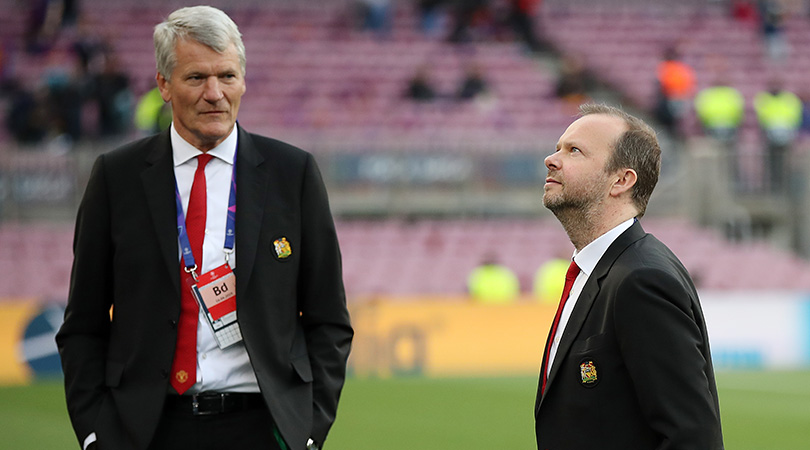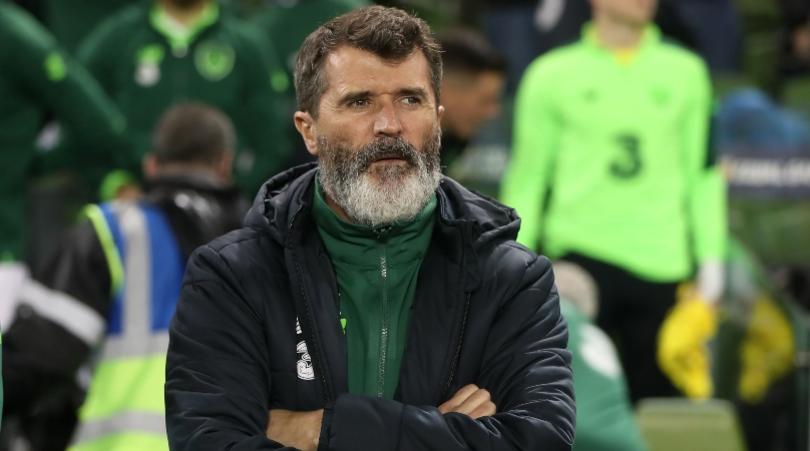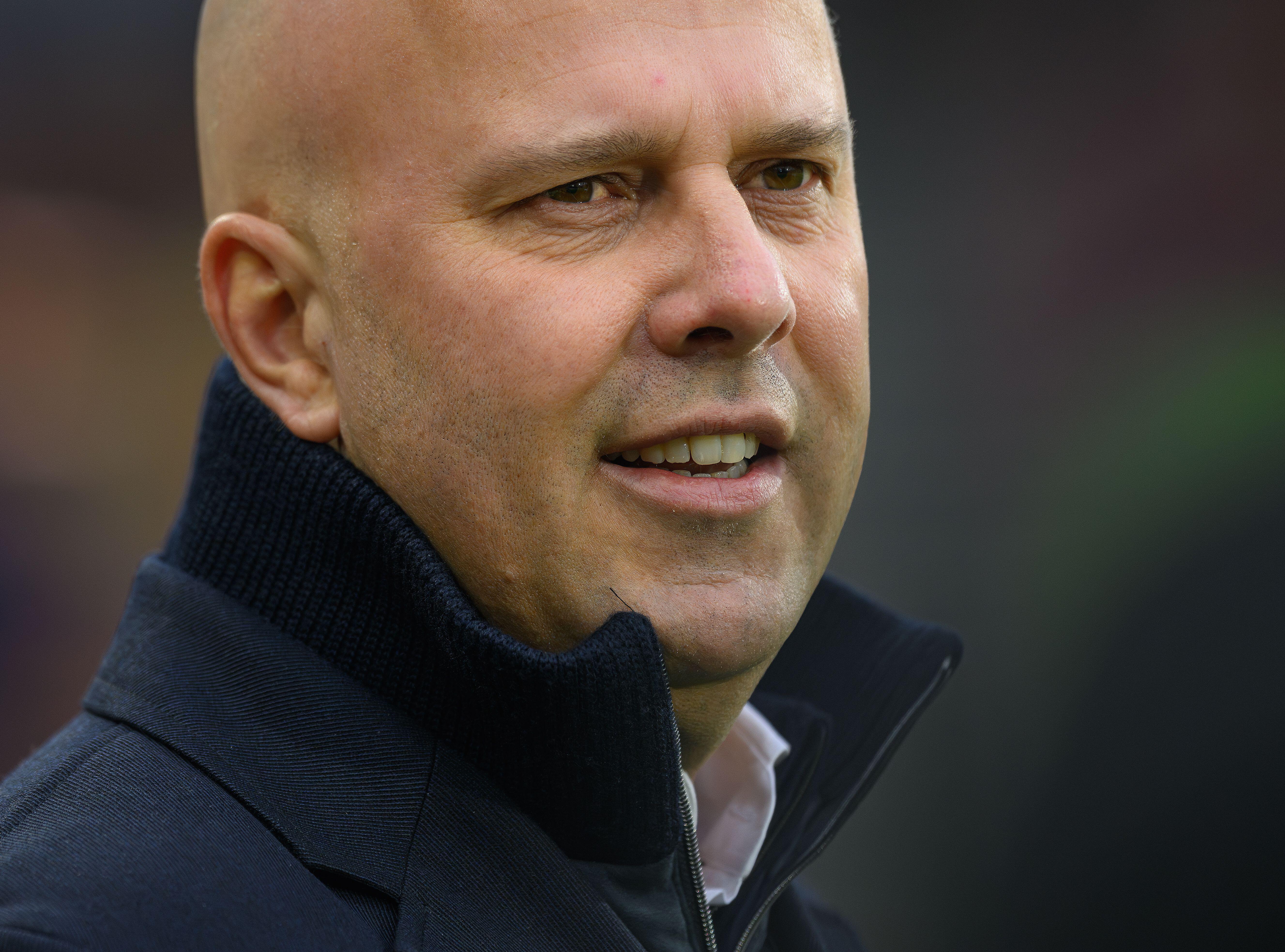Andy Mitten column: Why Manchester United fans shouldn’t expect a high-profile sporting director
The discussion rumbles on amid poor results and a hangover from bad recruitment – but things are brighter than they seem

Manchester United appointing a director of football is a story which won’t go away. I remember writing it on a train to Basel in November 2017 – that was when the club wanted someone to lighten the increasing burden of administration on the manager, but that role was not going to have any say in transfers. The appointment was never made.
The desire for a sporting director hasn’t gone away. Any appointee would now have greater involvement in recruitment, but as one of several voices. Don’t think that United’s target is a high-profile figure, established with his own brand, though – several highly successful sporting directors have offered themselves in 2019, only to be politely rebuffed.
There’s confusion here on several fronts. Some clubs have a sporting director, some don’t. Their role varies within those clubs, and as Arsene Wenger pointed out in 2017, there’s no clear job description. United have never had one and Jose Mourinho wasn’t in favour. The idea gained traction again after he left, however.
To understand how it would work, some understanding of how United operate right now is needed.
For one, the club are satisfied with how recruitment has functioned in the last year, culminating in three new arrivals: Daniel James, Harry Maguire and Aaron Wan-Bissaka, who are all showing promise. That’s not a given following poor recruitment in the post-Sir Alex Ferguson era. But while United are still in transition and not expected to mount a first title challenge since 2013, improvements should follow if they can keep buying sensibly.
Past mistakes can be minimised, but not it’s likely to be quite that simple. Buying footballers isn’t an exact science, and as recently as 2018, United paid over £50 million for a footballer who can’t even get in the current squad.
Fred deserves a second season to prove himself, but if he doesn’t it will be fair to ask what on earth went on there. The Brazilian was watched by United in every single home game he played for Shakhtar in the second half of the 2017/18 season.
Get FourFourTwo Newsletter
The best features, fun and footballing quizzes, straight to your inbox every week.
Executive vice-chairman Ed Woodward has been at the helm since 2013. His stock is battered among fans because so many bought in on his watch have failed. Despite that, the Glazers rate him and he’s going nowhere right now. Woodward is the man who signs every transfer off, who can negotiate some of the big deals, but he’s not the one identifying players any more than his predecessor David Gill – a finance, not a football man – was.
This is because United now have one of the largest scouting networks in the world, including key figures such as chief scout Jim Lawlor and technical chief scout Mick Court, who’ve been there since Ferguson’s time. Court was a recruitment analyst for a decade before his current role. Steve Brown, formerly of Everton, oversees the scouting network.
They work with analysts to make technical assessments based on data. United have reports from matches globally as they watch up to 15,000 players, most of them emerging talents. That number is whittled to 50 names in the autumn, and then narrowed to 15. The managerial team can take out more names, while the identified players are subject to more scouting and background checks. It’s a good idea to find out if Dan James is a decent lad from multiple sources, as opposed to the one or two self-interested types who said Angel Di Maria was.
When targets have been agreed, Matt Judge will get involved. His job title is head of corporate development, and his role is to negotiate with agents and to lay the foundations for those negotiations. He plays no part in the football evaluation, which is right since he has no football background.
An agent may name a player to Judge, who may even meet him before feeding names back to the recruitment department, but United’s signings are now being driven by themselves. Could the same have been said when Radamel Falcao or Bastian Schweinsteiger arrived? Or was that the agent approaching United knowing that they were one of the few clubs in the world able to pay their vast wages?
Ole Gunnar Solskjaer and Mike Phelan will be involved at almost every stage. The playing philosophy must come from them, but while a new technical director will have a voice, it must be a significant one. Otherwise, what’s the point in appointing somebody? They must have power.
There are a lot of people with exceptionally good CVs working on the recruitment side of things at United. Marcel Bout, the head of global scouting, was brought in by Louis van Gaal.
United are adamant that they don’t sign players based on their commercial value, but these suspicions stick because of their commercial success. They’re often wrong.
In 2006, I interviewed former defender Gordon McQueen, who said: “Manchester United have reared a (commercial) monster. I just wonder sometimes if the club has lost track about what it’s about. It should be about winning on the pitch, about homegrown players. I look at players like Park Ji-sung (for his commercial appeal in Asia) and get a bit suspicious of United’s motives when signing a player like that.”
Fans would have agreed with that view on Park at the time. They were wrong. Two years later, United won the Champions League. Park didn’t feature in Moscow, but he was an important player in the campaign.
In 2015, I wrote a critical article about United’s youth system and underinvestment. Afterwards, several people from the club came forward to thank me for writing it. United had fallen behind Manchester City and Chelsea in this department, and while Van Gaal promoted youngsters out of necessity, he wasn’t overly concerned about their development. He needed results in an instant. So does every United manager, but maybe there’s more patience now with what Solskjaer is trying to do.
United have increased their investment into the academy fourfold since 2015, and the players coming through are exciting again. The club feel that they can compete with and outbid any rival for a youth talent, because they also offer one of the best pathways into the first team. This is partly historical – but also now because the first team is mediocre.
United cast a global net, but there have been too few of their players in England’s recent youth squads. The best English players are the ones likely to stay at an English club and not yearn for a move to Real Madrid when they become stars. But that’s changing. There are five United players in England’s four youth teams right now. There were two a year ago. Manchester City have 12, yet they promote almost none of their best prospects.
United recruited Dave Harrison and Lyndon Tomlinson, two Leeds lads who were at Manchester City and are now regarded as two of the best coaches. They head up youth recruitment. United now have Leeds legend Frank Gray scouting for them – his grandson is on United’s books.
There’s a jigsaw coming together, but another respected voice – not a buffer between Woodward and the manager – can add to what United have within their development network. At the very least, they can object to signing the next Alexis Sanchez when everyone (including the fans) are saying the opposite.
Ultimately, while they work as a collective, it’s Solskjaer and Woodward who will be judged. After years of failing, United’s recruitment – both with or without a sporting director – is starting to look a little smarter.
While you're here, why not take advantage of our brilliant subscribers' offer? Get 5 issues of the world's greatest football magazine for £5 – the game's greatest stories and finest journalism direct to your door for less than a pint in London. Cheers!
NOW READ
QUIZ! Can you name the last 50 English scorers in the Premier League?
FUN Who would play every Premier League manager if they were cast in a Hollywood film?
WATCH Premier League live stream 2019/20: how to watch every game from anywhere in the world

Andy Mitten is Editor at Large of FourFourTwo, interviewing the likes of Lionel Messi, Eric Cantona, Sir Alex Ferguson and Diego Maradona for the magazine. He also founded and is editor of United We Stand, the Manchester United fanzine, and contributes to a number of publications, including GQ, the BBC and The Athletic.

